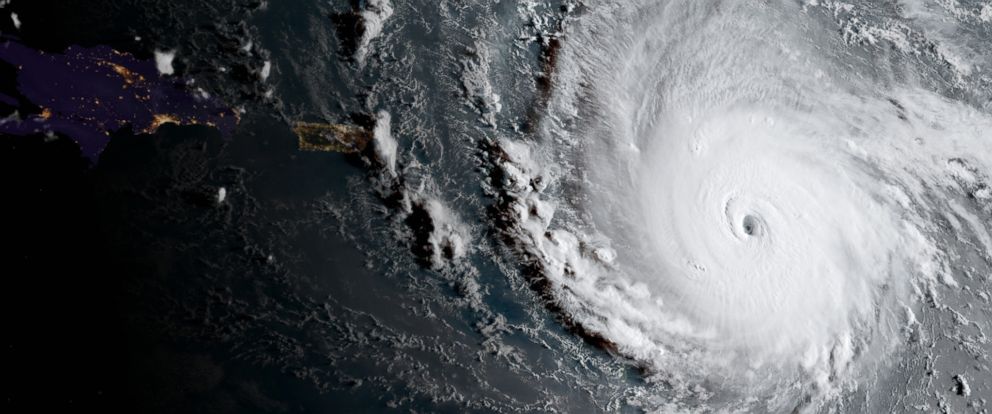This article was originally published September 2017.
Irma and Harvey may go down as the Bonnie and Clyde of tropical hurricanes. My extended family in Texas suffered great loss from the latter (though all of their lives were spared, by God’s grace), and now my immediate and church family in Florida are preparing for the onslaught of the former, which as I type is a Category 5 and headed straight toward us. So both storms have occupied many of my thoughts the last two weeks.
Understandably, people are trying to make sense of these devastating natural disasters. “What is God saying to us?” is the question of the hour. Many of the responses are less than satisfying. Some are extremely unhelpful. As I have listened to these suggestions, Martin Luther’s wise counsel keeps ringing in my ears; “Let the man who would hear God speak, read holy Scripture.”
That doesn’t mean that God does not speak to us in nature or acts of providence. Psalm 19:1-6 and 119:117 make this clear. I think CS Lewis is correct when he writes in The Problem of Pain,
God whispers to us in our pleasures, speaks in our conscience, but shouts in our pains: it [pain] is His megaphone to rouse a deaf world.
But Luther is also correct in admonishing us to go to Scripture in order to hear from God. To guard against unhelpful speculations what we must do is let Scripture interpret providence.
So, if pain is God’s “megaphone to rouse a deaf world,” what is He saying to us in these recent deadly hurricanes?
In Luke 13:1-5 Jesus answers that question by addressing people who were perplexed over the outbreak of both moral atrocities and natural disasters.
There were some present at that very time who told him about the Galileans whose blood Pilate had mingled with their sacrifices. 2 And he answered them, “Do you think that these Galileans were worse sinners than all the other Galileans, because they suffered in this way? 3 No, I tell you; but unless you repent, you will all likewise perish. 4 Or those eighteen on whom the tower in Siloam fell and killed them: do you think that they were worse offenders than all the others who lived in Jerusalem? 5 No, I tell you; but unless you repent, you will all likewise perish.”
When the tragedy that resulted because of Pilate’s sinful violence was put to Him (1-3), Jesus did not stop with addressing the lessons that moral evil in the world teach those who do not experience it directly, but He goes on to include the lessons that natural disasters teach us, too.
In v. 4 Jesus brings up eighteen people who died because a tower fell on them in Jerusalem. It was probably due to a weather event, like a tornado, or perhaps an earthquake. Whatever the cause, it was a natural disaster. Just like the ones created by Harvey and Irma.
What was God saying in that tragedy? Two things. First, we should not think that those who suffered in it are worse sinners than those who did not suffer. Second, in the wake of the tragedy God calls everyone to repent. “Unless you repent, you will all likewise perish.”
This is what God is saying to us in the storms. “Take note of the sudden, horrific suffering that has fallen on those affected, and realize that you are no less deserving of such suffering. The suffering they have experienced is a mere foretaste of the everlasting suffering that awaits all who refuse to repent of sin and return to Me.”
That is what God always says in tragedies. Hurricanes are warnings to us of the eternal judgment yet to come. They are like warning shots fired across the bow of ships that are sailing in rebellion to God. They are calls to repentance—to turn away from our sin to return to our Creator by trusting His Son, the Lord Jesus, for salvation.
Christ is the only safe refuge from the coming Day of Judgment—a day that will make Hurricanes Harvey and Irma seem like arguments on a playground in comparison. Because He has lived a life of perfect righteousness and died a death that fully atones for sin, only those who bow to Him as Lord, who repent of sin and trust Him for eternal life will be saved.
That is what God is saying to us. These storms, together with every other tragedy in life, are calls to repent of sin and trust the Lord Jesus. May the Lord give us ears to hear this message. And may He enable us to help others recognize what He is saying as we let His Word interpret His providence.





















